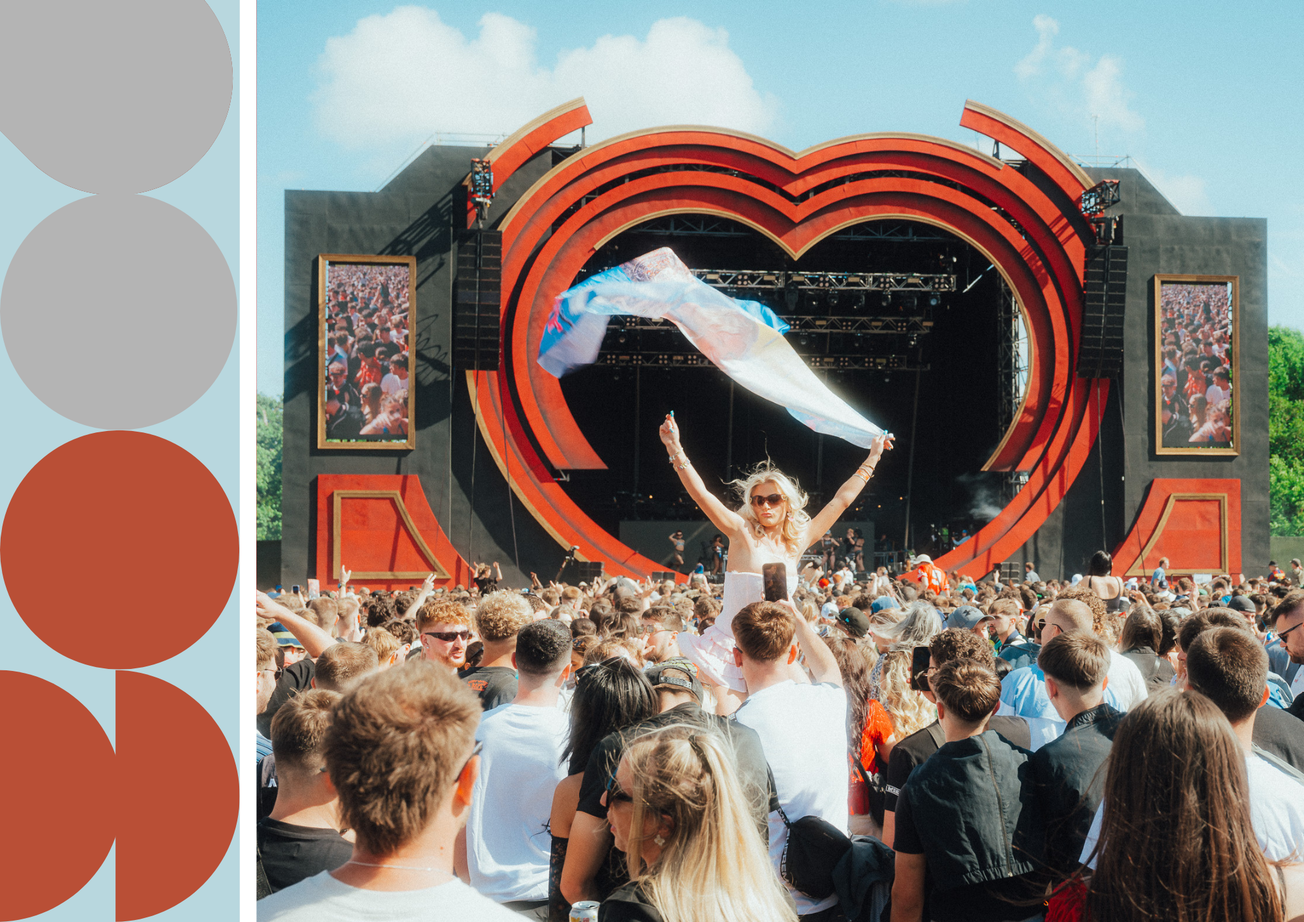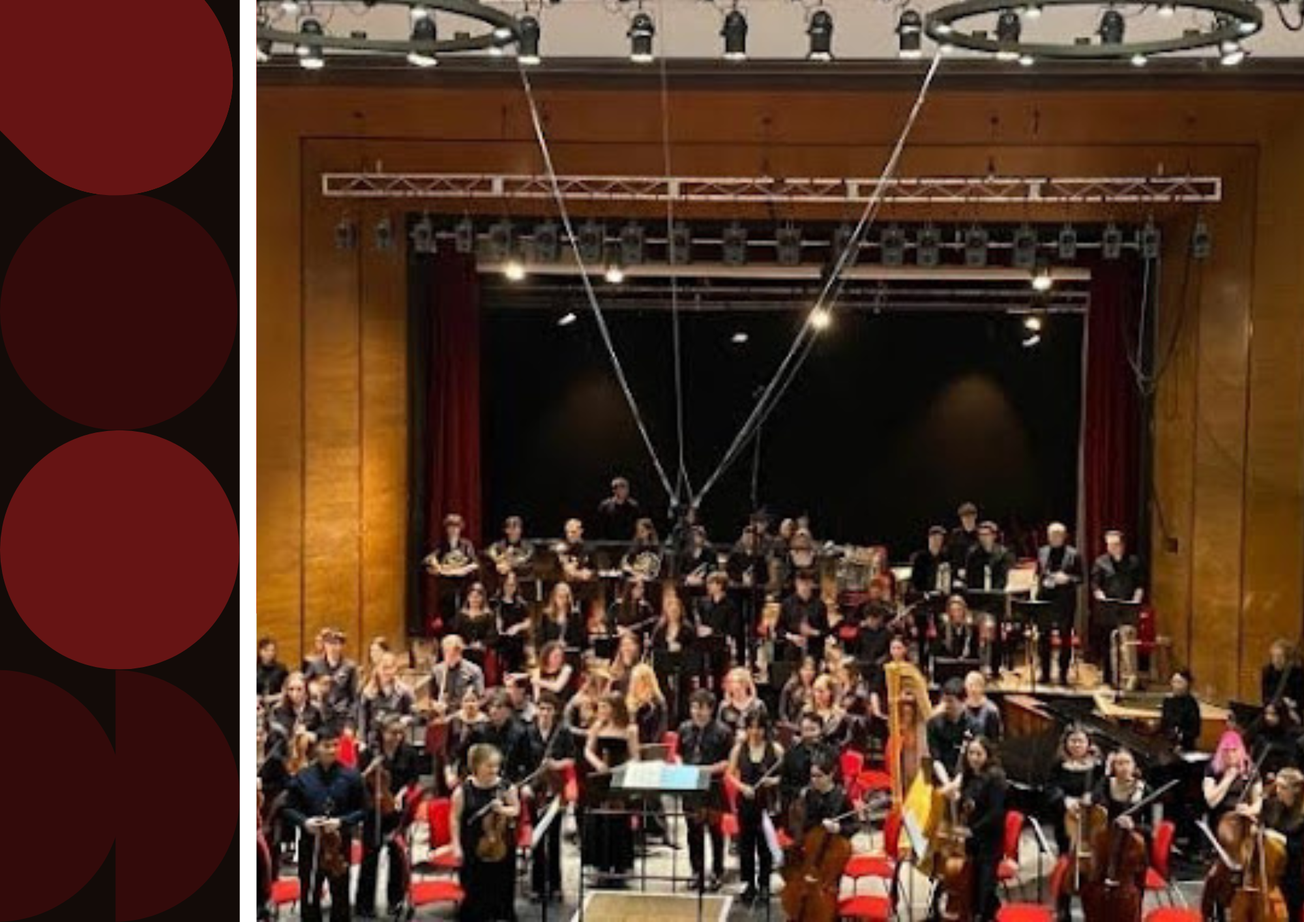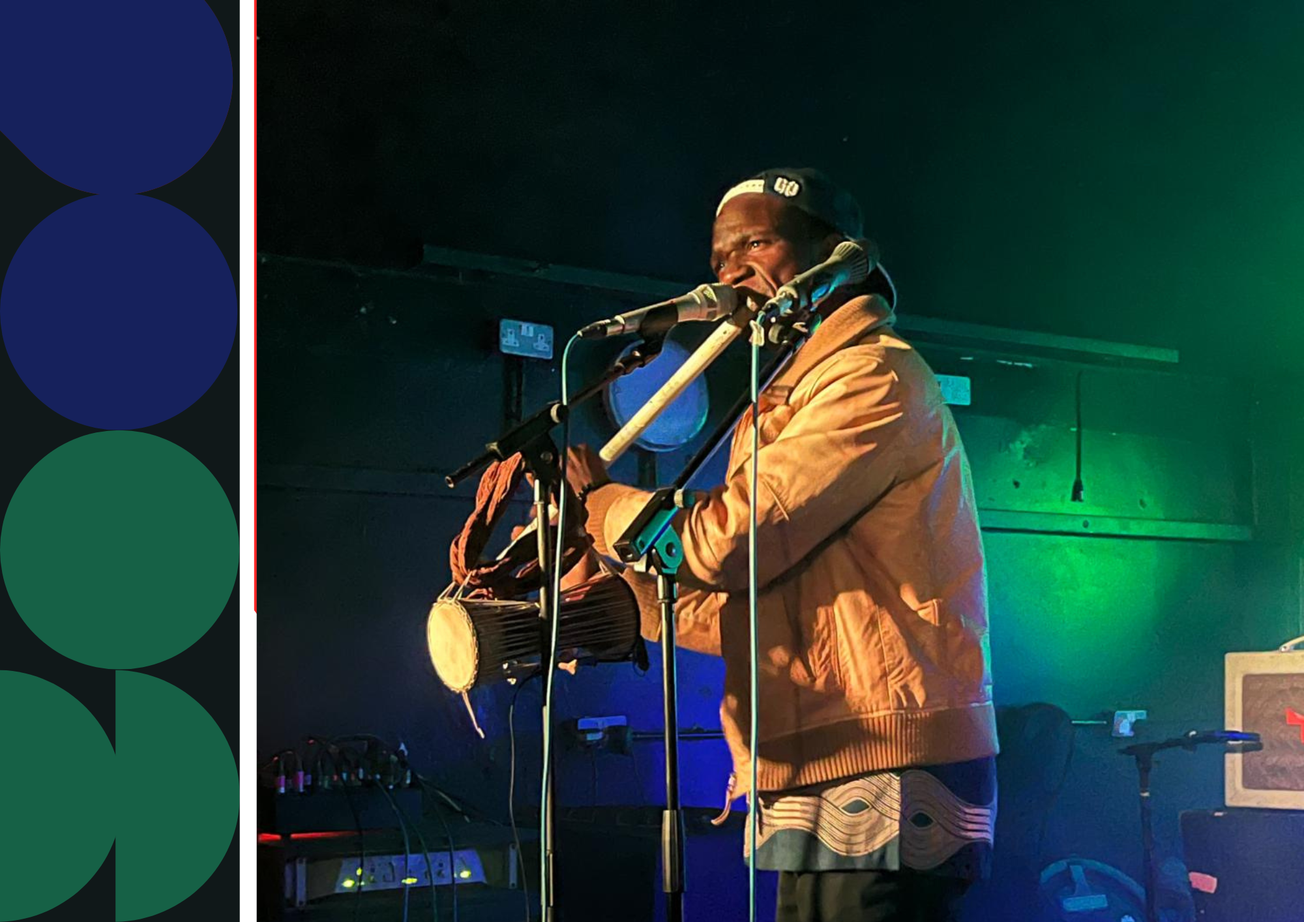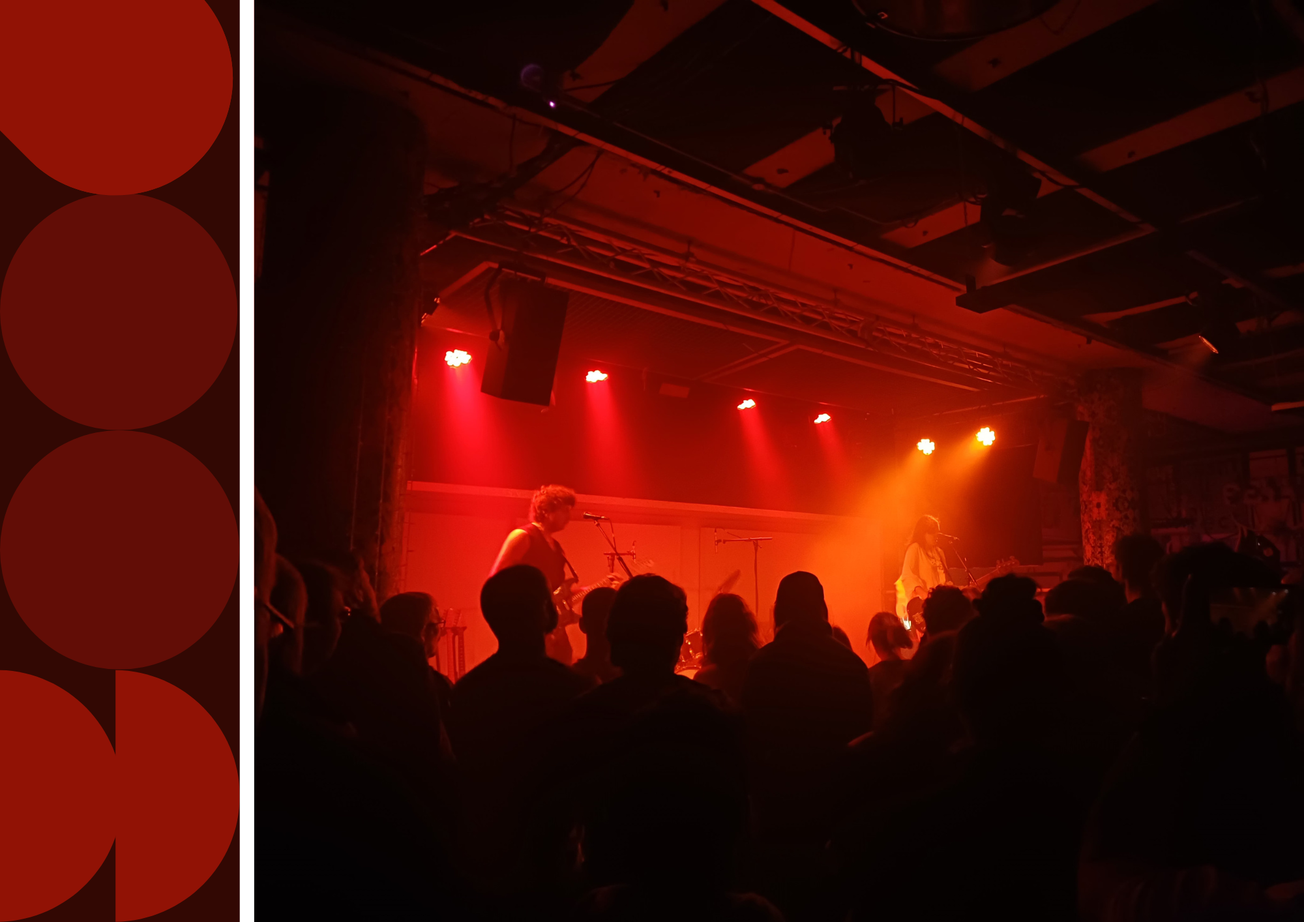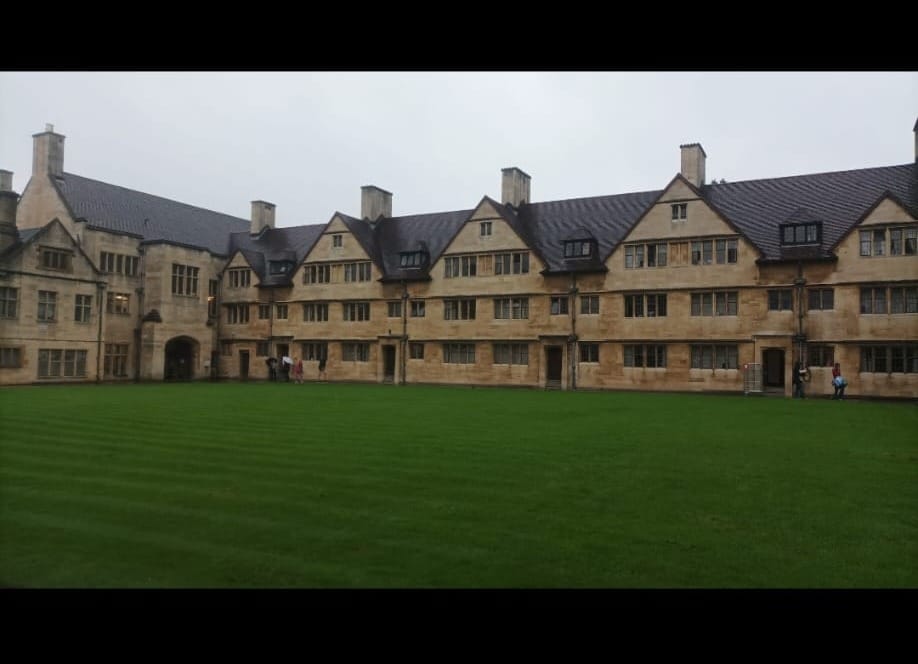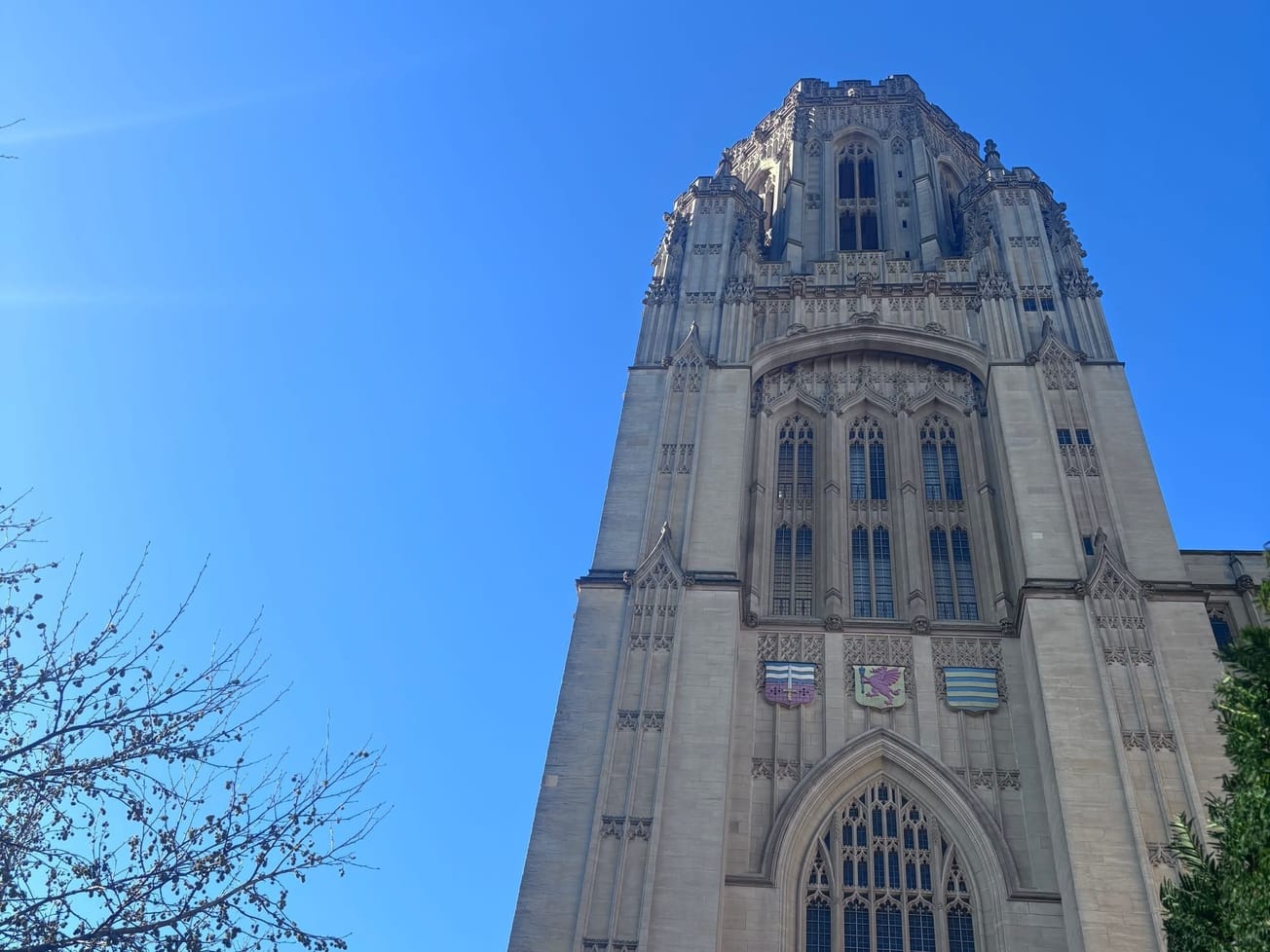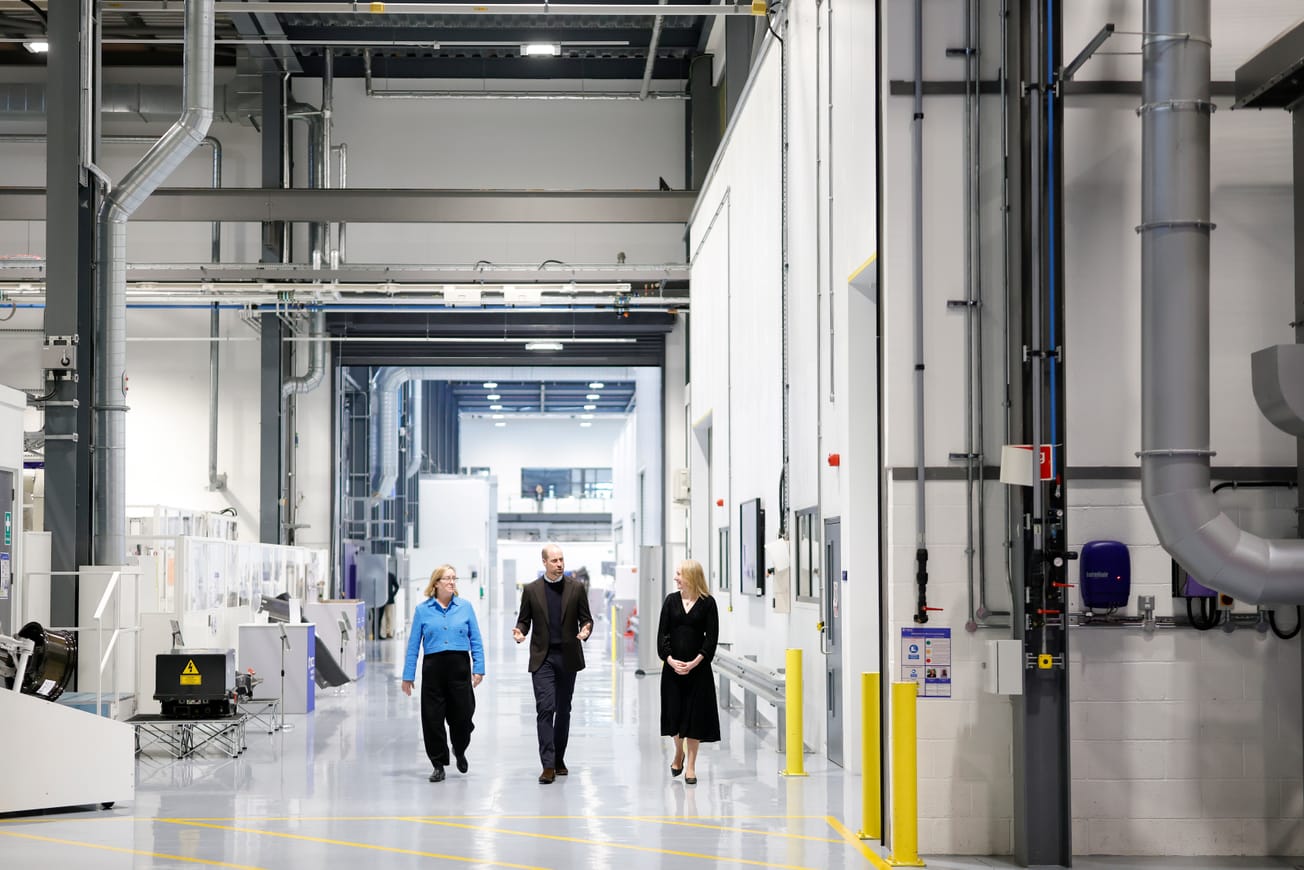By Dylan McNally, Co-Deputy Music Editor
It’s hard to know what to expect with Fat Dog. With a reputation for immense live shows and an ever-growing cult following, they are one of the country’s most talked about bands. Yet a sense of mystery remains; outside of a few YouTube videos, information is scarce. To understand it all, or even catch a glimpse, you really have to be there, in the right place and at the right time.
So, the irony was not lost on me when I turned up to interview them, in both the right place and at the right time, and the band were running late. Soundcheck had run over as they tried to convince the sound engineer at Strange Brew that the audience should feel the noise as well as hear it. Neither party seemed fully convinced by the final outcome. When that was over, lead singer Joe accompanied by Johnny (drums) and Chris (synths) decided it was time for a pint, and at their request we went to the Hatchet, leaving the other members of the band behind. As such, this felt less like an interview and more like a conversation between friends that I happened to be overhearing.
‘We’re sort of lazy, sorry, perfectionist’ Chris jokes when I ask about their approach to building up their reputation and audience over the past year or so. ‘It was just about getting people down to the live gigs’ explains Joe. A simple approach maybe, but one that’s clearly worked. ‘It happens sometimes in the Windmill scene’ Johnny tells me, referencing The Windmill in Brixton, the pub and venue that has been home to Fat White Family, Black Midi and Black Country, New Road amongst others over the years, and for which this current post-punk scene is named. Although Johnny says the band are wary of being ‘lumbered in too much’ as he puts it, to the Windmill scene, they also recognise that they owe it a fair bit - ‘the Windmill’s big for that, they gave us a chance’.
But there is also more to Fat Dog than The Windmill, after all this is a band that managed to bag a national tour with Sports Team without being signed to a label or having released any music. In particular, the band tell me the quirks of touring Europe and Chris attempts a German accent to tell me how ‘you realise cultural differences especially in Europe. It’s like if they like it they won’t do anything they’ll just stand there and stare and you’ll be like “oh no” but they come up to you afterwards and be like (mimics German accent) “that was a really good gig”’. It’s not all like that though, and Johnny points out that, in Holland in particular, ‘they really love and appreciate the music and don’t mind showing it, often quite ferociously’ as he tells stories of parents holding babies next to the mosh pit in Rotterdam.
This sense of chaos and intense audience interaction is what is so intriguing about Fat Dog. Go to any of their gigs, especially those early London ones and in between the constant moshing, you’d see at least half the crowd singing along to an entire set of unreleased songs. It’s chaotic, not least because you’ll never know what you’re going to get from the band themselves, but it’s exciting and it’s no wonder the hype was built so quickly. Theatrics are something the band have always encouraged. Joe tells me ‘we always wear this stuff’ when I ask about the band’s penchant for costumes; Johnny wears a dog mask as a homage to former Windmill dog Lucky, whilst Joe is often found in a Judo outfit with a cowboy hat and Chris has a whole routine with a cloak, although they tell me ‘we don’t come up with theatrical songs so that Chris can do a backup dance’. They may be downplaying it, but it’s all part of the plan: ‘the dancing is part of the music, the plan is to encourage people to dance, there’s nothing worse than a gig where someone’s not dancing so to try and encourage that is great’.
So, whilst the band might insist that the music is the focus, as of course it has to be, it’s this chaos with the audience that allows it all to happen and really allows the music to come to the fore. The chaos continues off-stage, as I find with this conversation when I realise that I’m no longer actually asking any questions, and instead the conversation shifts to Paul Chuckle’s DJing abilities, ale and at one point Johnny does a rendition of Snooker Loopy by Chas And Dave. I try to get it back on track, but there never really was one to begin with. When I ask them to describe their sound, their answer is ‘it’s like if Rabbi’s took loads of ecstasy’ after which Joe steps in with, ‘we’re always striving to sound a little bit more like Black Midi everyday’, whilst Johnny gives me the closest thing to a real answer in that ‘it’s a mixture of punk and techno’. To be fair to them, it’s hard to define anything to do with Fat Dog, not least their sound, but if you had to try it probably would be something along the lines of a mix of punk and techno.
Talk then turns to the future, having recently signed to Domino and finally releasing single ‘King of the Slugs’, I ask what’s next? ‘you get signed and now you’ve got to do things’, things like a national headline tour and interviews in the pub with student journalists. It’s not all bad though, ‘since we’ve got the TV in the van, there’s no going back from that’ (in case you were wondering, the show of choice on tour is Kitchen Nightmares, apparently).I’m told there’s new music soon – ‘Definitely. We’re just milking Joe for all he’s got, twisting those teats for a single drop’.
For all the joking around and chaos that comes with them, Fatdog are very serious about their music; they just know how not to take themselves too seriously while they’re at it. It’s probably the best way to be, and what’s come out of it is a band that’s doing something genuinely new and very exciting. In this case, you might want to believe the hype.
Featured image: Dylan Coates
Have you listened to Fat Dog?


